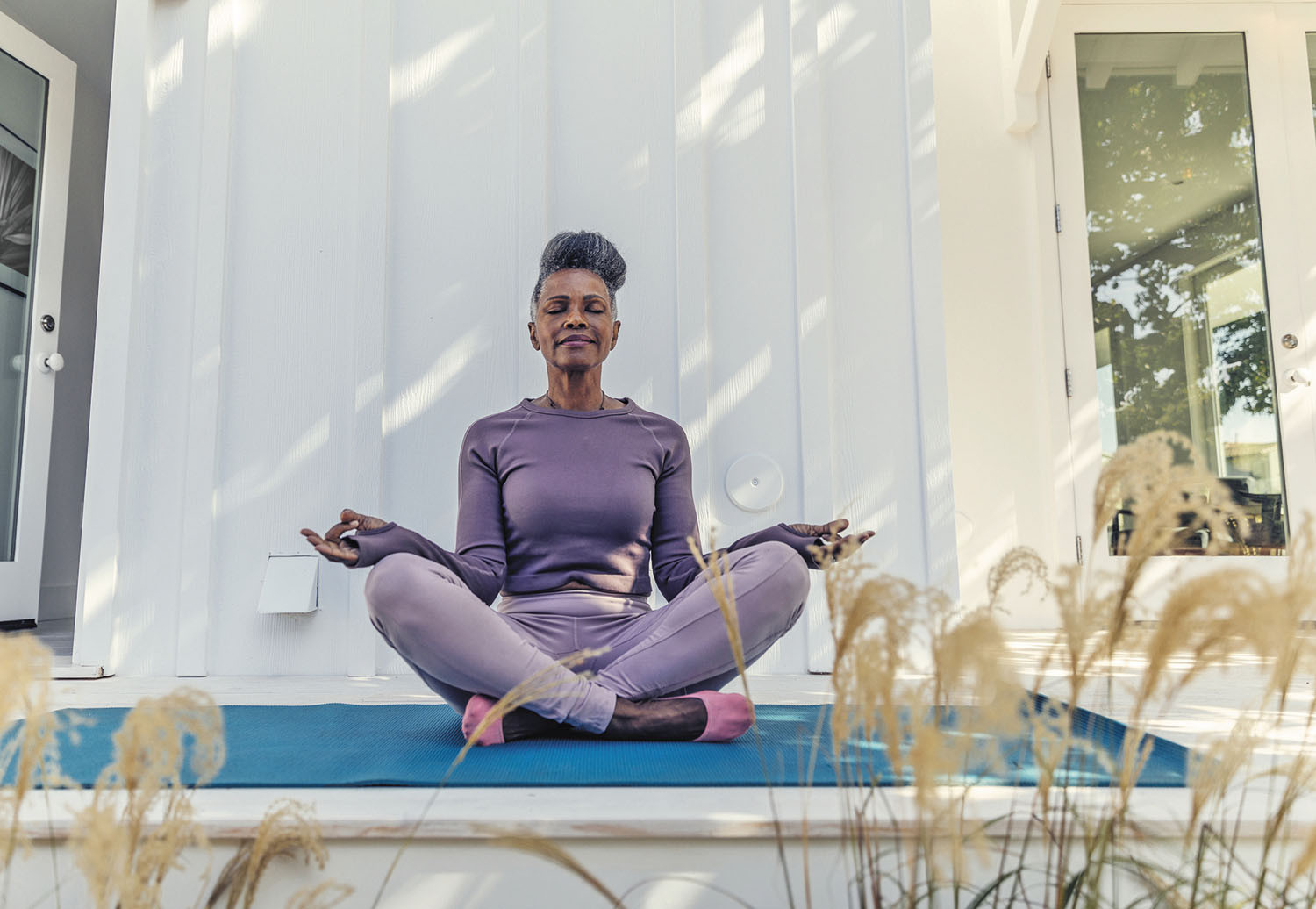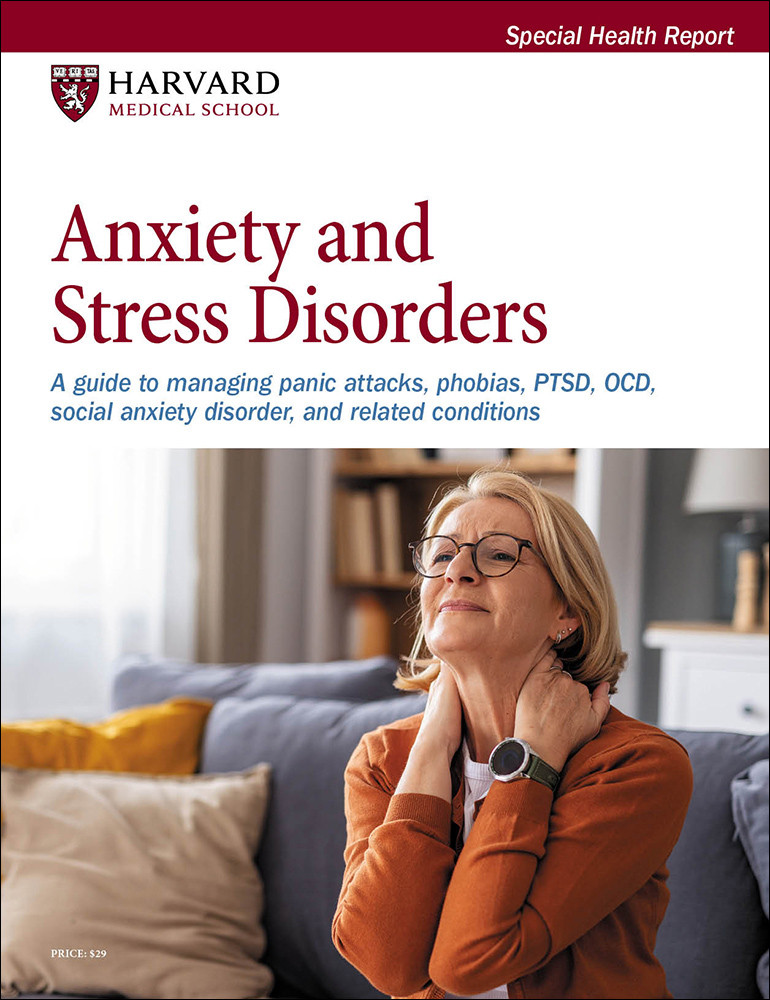A pill-free way to treat anxiety
News briefs
- Reviewed by Anthony L. Komaroff, MD, Editor in Chief, Harvard Health Letter; Editorial Advisory Board Member, Harvard Health Publishing

For people with an anxiety disorder — chronic, intense worry that makes it hard to concentrate or sleep — first-line treatments are often medications called antidepressants. They can have side effects such nausea, fatigue, headache, or sexual dysfunction. But a randomized trial published online Nov. 9, 2022, by JAMA Psychiatry found that a pill-free approach might be just as effective for reducing anxiety symptoms. Scientists randomly assigned almost 300 people to either take an antidepressant called escitalopram (Lexapro) every day or participate in a mindfulness-based stress reduction program. The program included 45 minutes of daily meditation at home and a weekly 2.5-hour in-person class with an instructor. Participants learned a number of mindfulness techniques, such as breath awareness and stretching designed to bring awareness to the body. After eight weeks, both groups had similar results, reducing anxiety symptoms by about 30% over that period.
Image: © The Good Brigade/Getty Images
About the Author

Heidi Godman, Managing Director
About the Reviewer

Anthony L. Komaroff, MD, Editor in Chief, Harvard Health Letter; Editorial Advisory Board Member, Harvard Health Publishing
Disclaimer:
As a service to our readers, Harvard Health Publishing provides access to our library of archived content. Please note the date of last review or update on all articles.
No content on this site, regardless of date, should ever be used as a substitute for direct medical advice from your doctor or other qualified clinician.
















